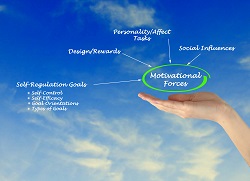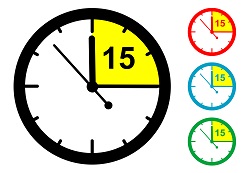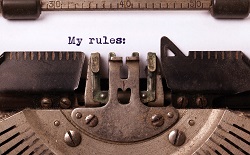
I’ve written a couple of posts quoting
Anne Ortlund, on her
book and on her ideas of
stripping down our lives. Sadly, she’s no longer with us, but her heritage lives on in her books. (The first link is to her Amazon page.) Today I was struggling (as usual) to get myself going on what I needed to do, and I was reminded of her idea that says,
This is what life-planning is all about. Under that wonderful umbrella of “if God wills,” we need to decide where we suspect he’d like us to go. We need to see what provisions are necessary for each leg of the journey, and get them. Then we need to say “no,” “no,” “no,” daily all the rest of our lives to . . .
 Here it is, the start of a new work week. I’m sitting in my somewhat- messy kitchen, getting the “next thing” done–writing today’s blog post. This past weekend I was privileged to attend a conference at my in-laws’ church. What a wonderful experience to hear two godly women, one with Parkinson’s disease, one with a son recovering from a heart transplant, speak about their faith. But now . . . guess what? I need to put some of that great teaching into practice. Otherwise, to use an analogy I’ve heard many times, I’ll be like the Dead Sea. Know why that body of water is so salty, so devoid of life? . . .
Here it is, the start of a new work week. I’m sitting in my somewhat- messy kitchen, getting the “next thing” done–writing today’s blog post. This past weekend I was privileged to attend a conference at my in-laws’ church. What a wonderful experience to hear two godly women, one with Parkinson’s disease, one with a son recovering from a heart transplant, speak about their faith. But now . . . guess what? I need to put some of that great teaching into practice. Otherwise, to use an analogy I’ve heard many times, I’ll be like the Dead Sea. Know why that body of water is so salty, so devoid of life? . . .
 Here it is, the start of a new work week. I’m sitting in my somewhat- messy kitchen, getting the “next thing” done–writing today’s blog post. This past weekend I was privileged to attend a conference at my in-laws’ church. What a wonderful experience to hear two godly women, one with Parkinson’s disease, one with a son recovering from a heart transplant, speak about their faith. But now . . . guess what? I need to put some of that great teaching into practice. Otherwise, to use an analogy I’ve heard many times, I’ll be like the Dead Sea. Know why that body of water is so salty, so devoid of life? . . .
Here it is, the start of a new work week. I’m sitting in my somewhat- messy kitchen, getting the “next thing” done–writing today’s blog post. This past weekend I was privileged to attend a conference at my in-laws’ church. What a wonderful experience to hear two godly women, one with Parkinson’s disease, one with a son recovering from a heart transplant, speak about their faith. But now . . . guess what? I need to put some of that great teaching into practice. Otherwise, to use an analogy I’ve heard many times, I’ll be like the Dead Sea. Know why that body of water is so salty, so devoid of life? . . .
 I have thought many times that the worst thing in the world for me is to get up in the morning and think, “There’s nothing that I absolutely have to do today; I get to set my own schedule.” At the end of the day I almost certainly will not have accomplished many, if indeed any, of the tasks on my to-do list. I will have started out the day with good intentions, but I won’t have lived up to them.
I have thought many times that the worst thing in the world for me is to get up in the morning and think, “There’s nothing that I absolutely have to do today; I get to set my own schedule.” At the end of the day I almost certainly will not have accomplished many, if indeed any, of the tasks on my to-do list. I will have started out the day with good intentions, but I won’t have lived up to them.
 . . . a blessing was lost!
. . . a blessing was lost! “Have you realized that most of your unhappiness in life is due to the fact that you are listening to yourself instead of talking to yourself?” David Martyn Lloyd-Jones
“Have you realized that most of your unhappiness in life is due to the fact that you are listening to yourself instead of talking to yourself?” David Martyn Lloyd-Jones I’ve written a couple of posts quoting
I’ve written a couple of posts quoting  . . . can change your life.
. . . can change your life.
 I write in chapter two of my book, “
I write in chapter two of my book, “ I’ve been mildly obsessed of late with the Phantom of the Opera. If you’re a reader of the posts over on the music blog page, you’ll remember that my chorale is singing a piece from the musical and that I was trying to find out the reason for the Phantom’s disfigurement. I mentioned the novel
I’ve been mildly obsessed of late with the Phantom of the Opera. If you’re a reader of the posts over on the music blog page, you’ll remember that my chorale is singing a piece from the musical and that I was trying to find out the reason for the Phantom’s disfigurement. I mentioned the novel  A number of years ago I read an article in the Washington Post Magazine (attempts to track it down online have been unsuccessful) about expensive weddings. The highlight of the story was the description of a couple who spent $100,000 on their special day—and this happened at least a decade ago, when a $100,000 wedding was really a $100,000 wedding.
A number of years ago I read an article in the Washington Post Magazine (attempts to track it down online have been unsuccessful) about expensive weddings. The highlight of the story was the description of a couple who spent $100,000 on their special day—and this happened at least a decade ago, when a $100,000 wedding was really a $100,000 wedding.